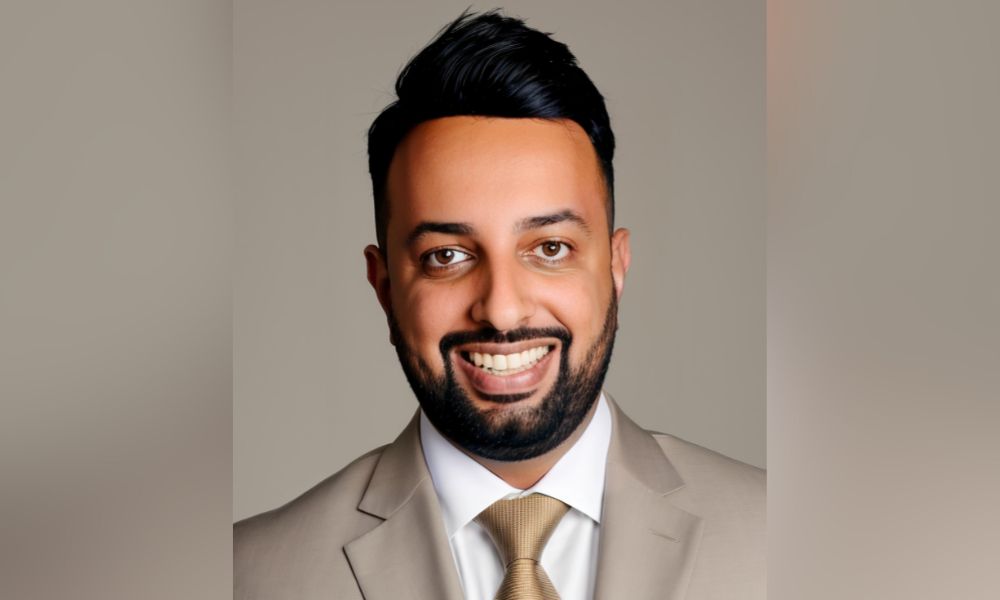“Clients don’t know what they don’t know”: Addressing gaps in customer care

“Clients don’t know what they don’t know”: Addressing gaps in customer care | Insurance Business Canada
Technology
“Clients don’t know what they don’t know”: Addressing gaps in customer care
“When you do the right thing by your clients what you’ll get in referrals will give you the ability to continue doing business”
Technology
By
Emily Douglas
As the market continues to grow in complexity and risk, insurers are having to adopt a mentality of resilience and adaptation in order to not only survive, but thrive. Research from Swiss Re found that the insurance industry is strengthening its resilience in a challenging environment – predicting that total premium growth will average 2.2% annually for the next two years. That’s higher than the average of the past five years.
Experior Financial Group is making strategic moves to ensure its advisors are prepared for the challenges of today’s insurance market. Senior executive director and shareholder Tariq Ba’Aqeel (pictured) is leading efforts to integrate advanced technologies into the company’s operations, ensuring that their advisors remain competitive and effective in serving their clients.
“As an MGA we invest millions of dollars a year into technology, and support for our agents,” Ba’Aqeel told IB. “We have a team that’s responsible for vetting out which technologies are applicable to our advisors and which ones support our mission.”
AI in insurance expected to save the industry $390 billion by 2030
This forward-thinking approach ensures that Experior’s advisors have both the ease of access to necessary tools and the effectiveness needed to increase their return on investment. And Experior isn’t alone here. According to research from WorldMetrics, AI in insurance is expected to save the industry $390 billion by 2030, as AI can help insurance companies reduce operating costs by up to 30%.

The insurance market’s complexity, compounded by the increasing demand for personalized services, also continues to present its own unique set of challenges. Ba’Aqeel told IB that many tools available in the market were either too generic or insufficient for a thorough needs analysis.
“We created our own proprietary needs analysis and financial analysis tools,” he said, “to make sure that we can be exemplary in every aspect of the conversation that we have with our clients.”
The rising complexity of risks that clients face today, from traditional threats like illness and death to more nuanced challenges like business continuity and succession planning, also require a sophisticated response.
“Behind us as the advisor force and behind all the experience we have within Experior, our product partners are very good with providing key professionals that need to be consulted,” Ba’Aqeel said. He also highlighte the collaborative approach between Experior and its carriers, which includes tax planners, estate planners, lawyers, and accountants, to ensure that the solutions offered are comprehensive and fully address the risks at hand.
“The biggest risk to businesses remaining viable was just being able to continue opening their doors”
However, we’d be remiss in speaking about the transformation of the insurance landscape without touching upon its biggest catalyst to date – the COVID-19 pandemic. Ba’Aqeel sees the importance of preparedness and adaptability in business operations as paramount after the event.
“The biggest risk to businesses remaining viable was just being able to continue opening their doors,” he told IB. As such, Ba’Aqeel’s focus on business overhead insurance and key person insurance, and overall planning with a focus on finances reflects a strategic approach to ensuring that businesses can withstand unforeseen disruptions, safeguarding their continuity in the face of potential crises.
Regulatory challenges are another significant aspect of the industry that Ba’Aqeel is keenly aware of. With their CEO recently appointed to the board of directors of CAILBA, Experior is positioned to stay ahead of compliance requirements.
“We’re able to get the information from the top, right from the source, and implement anything we need to immediately,” Ba’Aqeel explained. “We’ve taken a lot of those processes and implemented them on the US side of our business too.”
However, Ba’Aqeel also pointed out a deeper issue within the industry – the tendency of some brokerages to prioritize sales over client needs.
‘I didn’t know what I didn’t know’
“A lot of brokerages mainly focus on selling, selling, selling. It’s all about the dollar at the end of the day and not the impact of the work that we do,” he said. “If you only have a few products or services or carriers that you’re able to work with, how can you ensure that you are truly doing the best you can for your clients?”
Ba’Aqeel was unaware of the limitations imposed by the previous company he worked for – it was only after exploring other opportunities that he realized the gaps in his training and the potential disservice to clients.
“I didn’t know what I didn’t know,” he told IB. “Sometimes it may come with taking a bit of a hit on personal compensation, but I guarantee anybody the hit in personal compensation to learn how to do business the right way pays dividends far longer than anything else. I also feel clients don’t know what they don’t know. When you do the right thing by your clients what you’ll get in referrals and credibility will give you the ability to continue doing business.”
Related Stories
Keep up with the latest news and events
Join our mailing list, it’s free!






